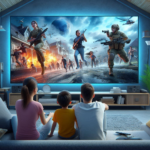Social media platforms, once hailed as revolutionary tools for connection, have morphed into a double-edged sword. Beneath the veneer of curated lives and viral trends lurks a dark side with profound consequences for mental health, social interaction, and even the way we think.
The Descent into Darkness: Cons and Mental Impacts
- Unending Comparison and FOMO (Fear of Missing Out): Social media cultivates a highlight reel of others’ lives, fueling feelings of inadequacy and a constant yearning for something more.
- Anxiety and Depression: The pressure to maintain a perfect online persona and the relentless bombardment of negativity can lead to anxiety and depression, particularly among young people.
- Echo Chambers and Confirmation Bias: Algorithms curate feeds that reinforce existing beliefs, creating isolated bubbles where users are rarely challenged or exposed to diverse viewpoints.
- Cyberbullying and Online Harassment: Social media anonymity emboldens negativity, leading to vicious online attacks that can have lasting emotional scars.
- Attention Deficit and Reduced IQ: The constant influx of short-form content and the pressure for instant gratification might be diminishing our ability to focus and engage in deep thinking.
The Societal Shift: A Changing World
- Social Phobia and the Decline of Real Interaction: The ease of online connection can lead to a decline in face-to-face communication skills and social anxiety in real-world settings.
- The Erosion of Trust and the Rise of Misinformation: The spread of unverified content thrives on social media, eroding trust in traditional institutions and fueling conspiracy theories.
- The Commodification of Children and the Pressure to Perform: Parents, caught in the grip of social media validation, sometimes exploit their children for online attention, pressuring them to perform for “likes” and comments. This stunts genuine emotional development and self-worth.
- The Stifling of Innovation: The constant pressure for social validation discourages taking risks and pursuing unconventional ideas, potentially hindering innovation and creativity.
The Scariest Part: A Dark Future of Social Puppets
The unfiltered nature of social media allows anyone to be a publisher, blurring the lines between fact and fiction. This can have a chilling effect on critical thinking and discernment, especially for young minds navigating the online world. Imagine a future where social media dictates reality, where independent thought is stifled, and conformity reigns supreme.
A Call to Action: Reclaiming Our Minds
We must acknowledge the dark side of social media and take steps to mitigate its impact. This includes:
- Promoting media literacy: Equipping ourselves and future generations with the tools to critically evaluate online content.
- Prioritizing real-world connections: Consciously fostering face-to-face interaction and nurturing in-person relationships.
- Mindful social media use: Setting boundaries, taking breaks, and curating feeds to promote positivity and meaningful connections.
- Parental responsibility: Guiding children towards responsible online behavior and protecting them from the exploitative aspects of social media.
Social media can be a powerful tool for connection and communication, but it’s crucial to be aware of its potential pitfalls. By fostering critical thinking, prioritizing real-world interactions, and using social media responsibly, we can navigate its dark side and ensure it doesn’t become the puppeteer of our future.












